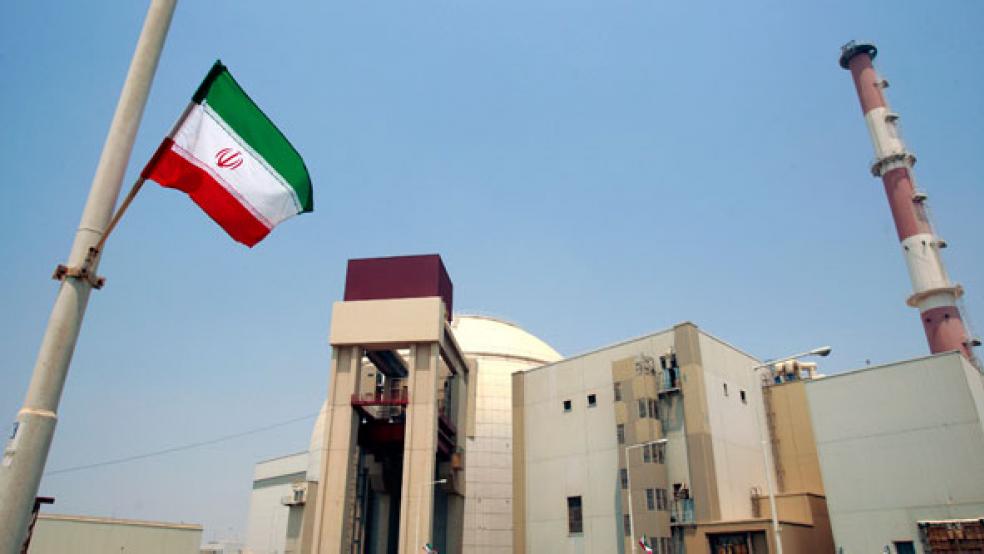Iranian president Hassan Rouhani once again expressed his desire to engage Western nations in negotiations over Iran’s nuclear program at his first press conference on Tuesday.
“I as president say that the Islamic republic has a serious political intention to resolve the nuclear issue while maintaining our rights and trying to ease the concerns of all parties in the short term,” Rouhani said.
The 64-year-old Rouhani’s willingness to renew talks with the United States and its allies is in stark contrast to the behavior of his predecessor Mahmoud Ahmadinejad. Iran’s former president was openly hostile toward the West and showed no willingness to talk.
But the question remains: How serious is Rouhani about compromise? It’s one thing to agree to talk; it’s another to actually agree to make changes, and then sell those changes at home.
Uncertainty over Rouhani has gripped Washington in recent weeks. Congress can’t decide how to proceed. On Monday, a group of 76 senators sent a letter to President Obama urging tougher sanctions until Iran agrees to scale back its nuclear program.
“Until we see a significant slowdown of Iran’s nuclear activities, we believe our nation must toughen sanctions and reinforce the credibility of our option to use military force at the same time as we fully explore a diplomatic solution to our dispute with Iran,” the senators wrote in the letter, delivered to the president Monday.
The House, on the other hand, sent the president its own recent letter urging Obama to engage with Rouhani through diplomatic channels. Written by Representatives David Price (D-NC) and Charles Dent (R-PA) and signed by 129 other members, the July 19 letter said:
“Given the stakes involved for the United States, Israel, and the international community, it would be a mistake not to test whether Dr. Rouhani’s election represents a genuine opportunity for progress toward a verifiable, enforceable agreement that prevents Iran from acquiring a nuclear weapon.”
Sources on the Hill have called this letter the most pro-diplomacy stance House members have ever taken. But just a week after the letter was circulated, the House overwhelmingly passed new limits on Iran’s oil, construction and mining industries (the Senate will consider these sanctions in the fall).
So far, the White House has been relatively silent about the specifics for dealing with Rouhani. Spokesperson Jay Carney said the Obama administration would be willing to negotiate if the Iranian government was willing to “engage substantively and seriously to meet its international obligations and find a peaceful solution to this issue.” State Department spokeswoman Jen Psaki said the election “presents an opportunity for Iran to act quickly to resolve the international community’s deep concerns over their nuclear program.”
But many questions about the path forward remain. Under what terms should the White House renew talks over Iran’s nuclear program that Tehran insists is for peaceful purposes? If talks do occur, should the United States take a hawkish position, or appear willing to make concessions? How should Washington deal with Israel, a close ally who is growing increasingly impatient with Iran?
CAUTIOUS APPROACH
Joel Rubin of the Ploughshares Fund, the anti-nuclear proliferation foundation, told The Fiscal Times on Tuesday all of these unanswered questions warrant a cautious strategy by the White House. He added:
- Obama should not ignore Rouhani’s record, including his time as Iran’s chief nuclear negotiator in 2004. In that role, he agreed to stop uranium enrichment.
“I do think we need to really make sure that we are testing all diplomatic avenues here. He has a track record” of working with the West, Rubin said. - Rubin warned against false optimism about the possibility for compromise following Rouhani’s election. “We’ve seen this window open before. This whole relationship is fraught with windows and opportunities open, closed and missed.”
Rubin also said the United States needs to stay focused on the nuclear issue.
The West has a laundry list of problems with Iran. Tehran backs terrorist organizations, has assisted Syrian President Bashar al-Assad in a civil war against the Syrian people, and is openly hostile toward Israel. - These issues should not cloud the nuclear talks. Instead, U.S. negotiators should push for verification mechanisms to determine that Iran is not enriching uranium for use in a weapon.
“We need to have very clear eyes. Our interest is preventing a nuclear bomb in Iranian hands and preventing another war in the Middle East,” he said.
HEALTHY SKEPTICISM
Looming over any negotiation is Israel. Israeli Prime Minister Benjamin Netanyahu has already said that he does not trust Rouhani. He renewed his call for increased pressure on Iran after Rouhani’s press conference.
“The only thing that has worked in the last two decades is pressure," Netanyahu said during a meeting with 36 Democratic congressmen in Jerusalem. "And the only thing that will work now is increased pressure.”
“We should not think because the new president appears to be a person we can engage with that all problems are resolved,” Rubin said. “We shouldn’t expect the Iranian leadership to be different than it was two weeks ago. We should not put ourselves in the mindset of thinking that Rouhani’s election solves everything.”
Email the author here. Follow him on Twitter @davidcfrancis.


